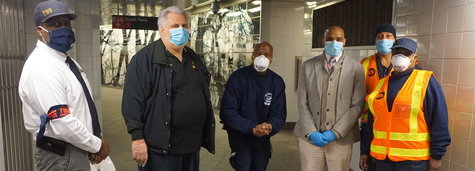Mooch. Leech. Freeloading bum.
Parasite on two legs.
Human sponge.
So many words, so little time.
It’s hard to settle on just one word or phrase for workers like Rebecca Friedrichs and the other nine California teachers who don’t want to pay a fee supporting their union’s core functions like negotiating contracts with raises and representing workers in disciplinary hearings.
In the lawsuit, Friedrichs v California Teachers Association, the teachers argue it’s a matter of free speech. Friedrichs and the other plaintiffs don’t agree with everything the union leadership does, so they shouldn’t have to pay a so-called “agency fee.”
Call them the Freeloading Ten, and put them in the category of workplace fringe curmudgeons: the pain-in-the-ass few who just have go against the grain, who wouldn't pay for something - anything - if they don’t have to, even if it was detrimental to the greater good, their larger community of workers, even if that forces others to shoulder a greater burden.
Friedrichs v CTA had rightwing fatcats and ideologues giddy with anticipation. They fully expected a 5-4 Supreme Court decision restricting how unions collect revenues, which would reduce their effectiveness and further diminish their role in society.
God forbid there be a real check-and-balance mechanism for the little guy, and gal, doing all the shoveling and lifting and trucking for corporate and government executives, many of whom would much rather to issue decrees without opposition.
A 5-4 majority from a conservative block of justices would have forced public sector unions to provide services - like negotiating contracts and enforcing safety rules– to non-members in the bargaining unit for free, potentially opening the floodgates to mooches like the Freeloading Ten.
That didn’t happen. But only because the big justice in the sky called Associate Supreme Court Justice Antonin Scalia home. Scalia, 79, passed away in his sleep in February of natural causes, after an afternoon of Quail hunting in Texas.
Laws in 23 states allow public sector unions to collect “agency fees” from workers who join their labor organizations, and from non-members who also benefit from union activities like negotiating contracts.
By law, unions can’t spend the money on traditional political purposes like supporting individual candidates for elected office. Separate union dues that members pay cover those expenses.
Stretching like Gumby, conservative activists argued in Friedrichs that everything a public sector union does is political because taxpayer funds are involved.
The Supreme Court might reconsider the Friedrichs’ case after the state Senate eventually confirms a justice to fill the current vacancy. Even if it doesn’t, the debate is not settled. Conservative activists have several similar lawsuits pending in the lower courts heading its way.
Just like the guy you know who always seems to forget his wallet and has yet to buy a round, Freeloaders are a persistent bunch.













